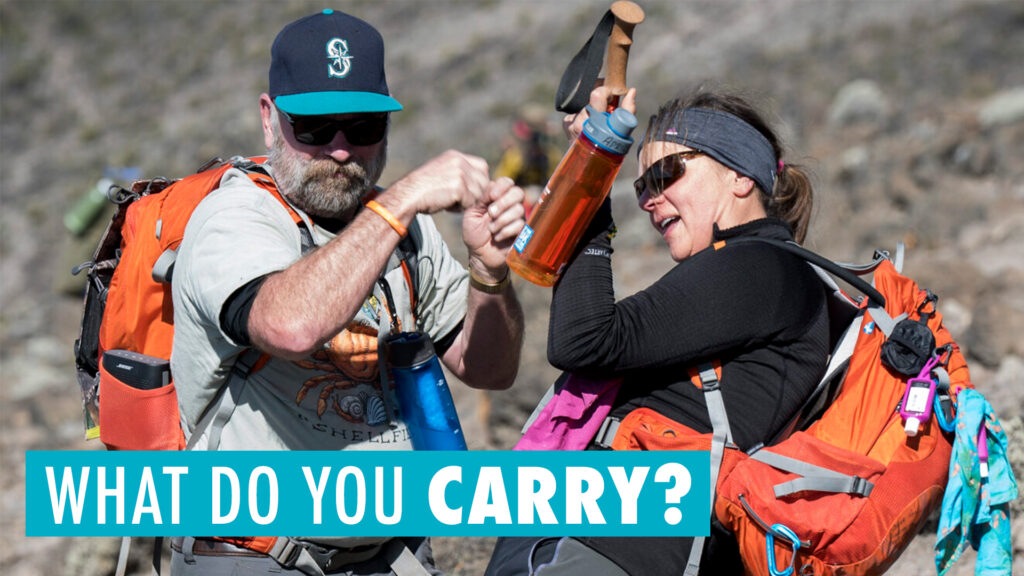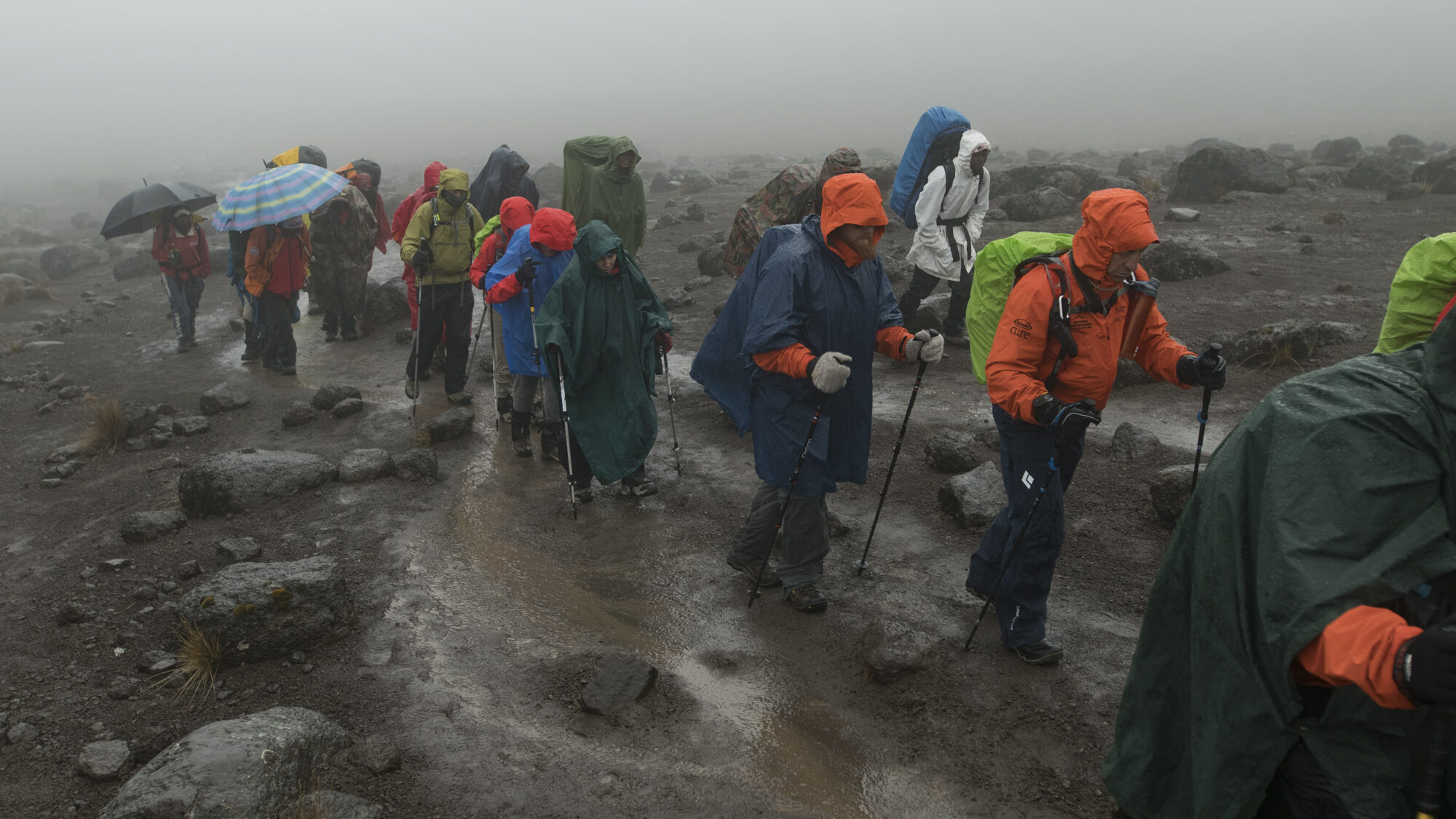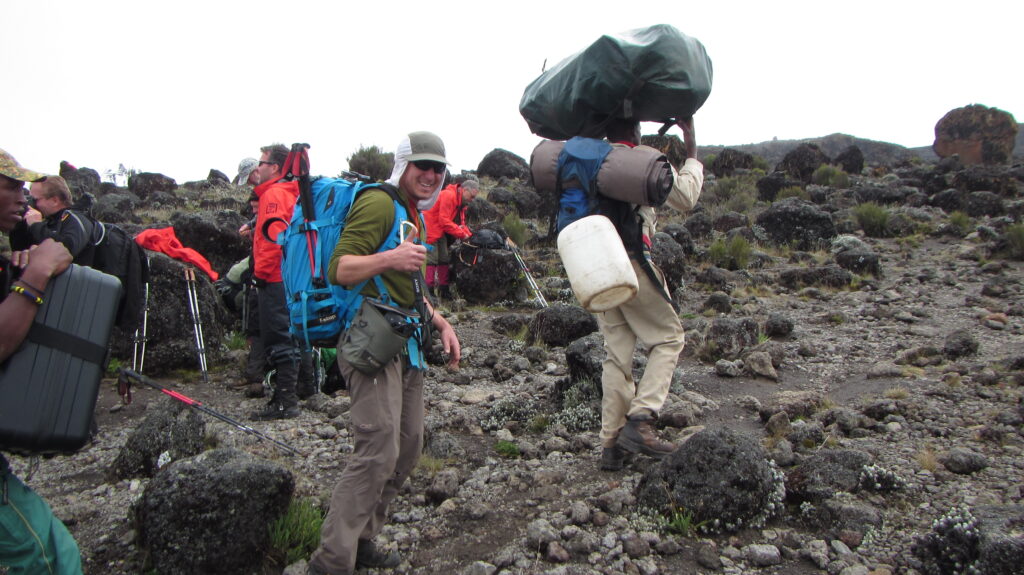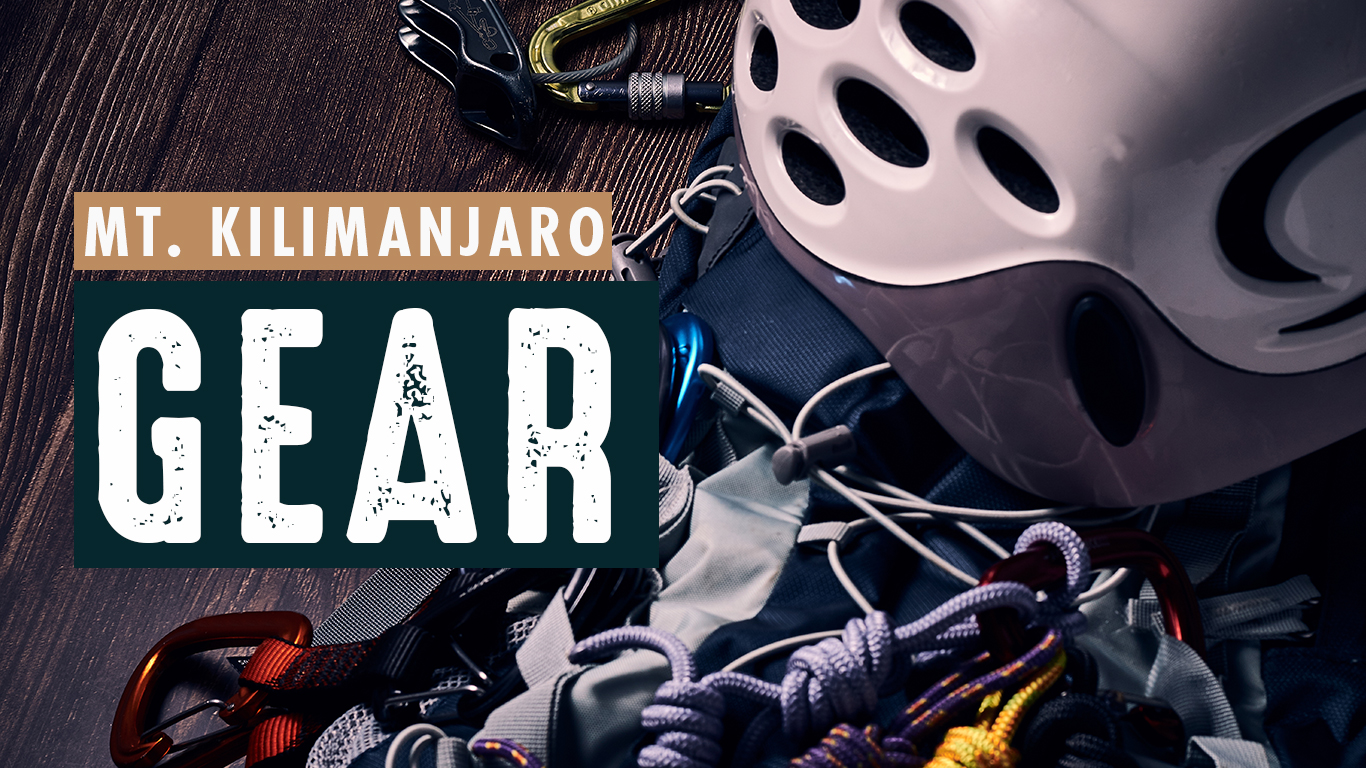
Although climbing Mt Kilimanjaro does not require specialized equipment, you do need to make sure all your gear is appropriate, serviceable, and in good working order. Guides and porters will assist with almost all group gear, as well as in setting up camp and preparing meals. Each day you just carry what you need for that day in a backpack (30-40L daypack is enough). Now, what goes into that daypack? Well, it all depends on what you think you’ll use during the day.

In general, in your day pack, you will carry your rain gear and 3 liters of water. Maybe sunglasses, a small first aid kit, and some sun lotion.
Let’s talk about the art of efficient packing. Instead of tossing things into your backpack, consider using assorted plastic bags, dry bags, or stuff sacks to sort them out neatly. For instance, gather up your small essentials like prescriptions, sunscreen, lip balm, and hand sanitizer and pop them into a zip-lock bag. Snacks deserve their own spot too, right? Here’s a little pro tip: aim for a balanced load. Heavier items, like water bottles, should be up close to your back’s midpoint. This keeps your center of gravity in perfect harmony with your spine.
Remember, the golden rule is to only carry what you’ll actually need. So, leave the cold-weather gear behind in your duffel bag – you won’t need it there! And bug spray? Not a worry at higher elevations.
Aside from the daypack, trekking poles and water bladders are something to consider getting. Trekking poles can reduce the impact on your joints by up to 20% and are great for assisting you in the descent.
Now, what about the other things you need? The awesome porters of Kilimanjaro take care of that! You’re going to want a waterproof duffel bag to carry your main gear, and the general recommendation is using a 90L duffle bag. This is going to carry all your gear for the whole adventure, including your sleeping bag and pad (unless you’re going for the pads provided by the company organizing your climb).

A little tip: make sure to give all your gear a test run and a good clean beforehand. Trust us, last-minute scrambles aren’t anyone’s idea of a good time.







